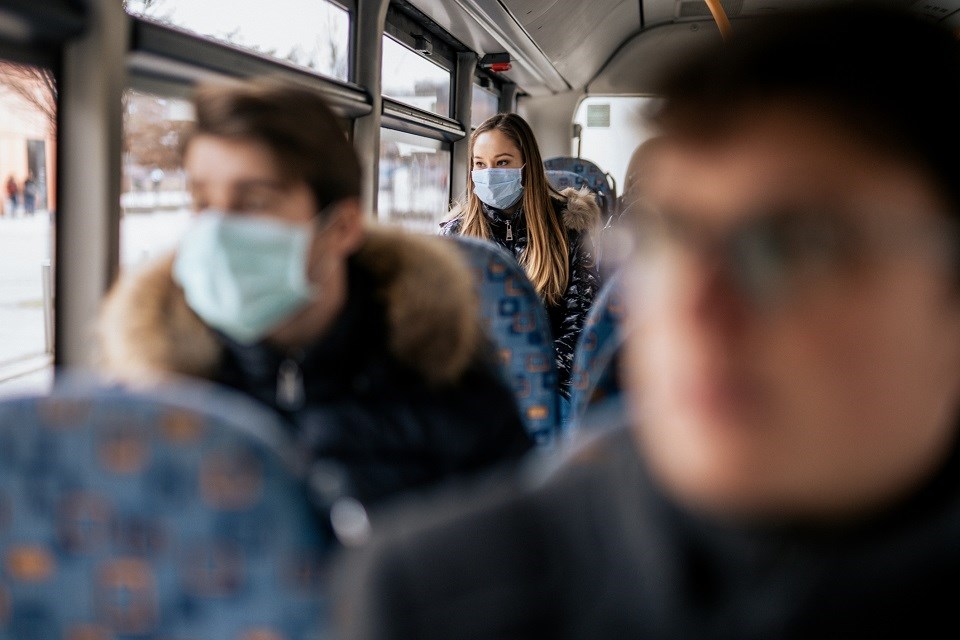On Aug. 24, BC Transit made masks mandatory for passengers on all of its transit vehicles, including in Whistler, but just how “mandatory” that policy is up for interpretation.
Whistlerite Matt Smerdon recently raised the issue with the transit provider after noticing drivers were letting maskless passengers onboard without issue. After asking a driver what the official policy was, he was told they were not allowed to bar anyone from boarding without a mask.
“I wasn’t too happy with the answer,” Smerdon said. “Because mandatory means you have to do it, and if nobody is enforcing it, then why is it mandatory?”
BC Transit was clear before rolling out the new protocol last month that customers unable to wear face coverings due to an underlying medical condition or disability would be exempt from the policy. That speaks to the tricky territory drivers have to navigate concerning medical privacy—which Smerdon understands, while adding that any passenger without underlying medical issues who informs the driver they simply forgot or don’t have a mask should be prohibited from boarding.
“If somebody goes, ‘Oh, it’s medical,’ then you just leave it at that. But if they just haven’t got one, then it’s like, do we say something?” he asked. “That’s the thing: if it’s mandatory, who’s enforcing it?”
In a statement sent to Pique, BC Transit explained that, “while face coverings are mandatory, the policy is being implemented as an educational step without enforcement. This approach is consistent with the views of [provincial health officer] Dr. [Bonnie] Henry and Public Health.”
BC Transit also outlined other accepted exemptions to mask-wearing: anyone unable to place or remove a mask without assistance; children under five years of age; transit employees working behind a physical barrier or within areas designated for employees and not for public access; and police, employees, or first responders in an emergency situation.
All conventional buses in the Whistler Transit system are equipped with full driver doors, a permanent barrier designed to protect drivers. As such, drivers are not required to wear face coverings when behind the barrier, although they do have access to masks and are encouraged to wear them when distancing isn’t possible.
BC Transit, in partnership with the Resort Municipality of Whistler, also handed out approximately 300 reusable masks at three different locations last week, with more available at municipal hall for anyone with a valid transit pass.
B.C. has lagged behind provinces such as Ontario and Quebec in making masks mandatory in indoor public spaces (with some exceptions), leading to an open letter penned last month by more than 80 B.C. doctors calling on officials to enforce a mandatory policy.
“Our opinion is based on recent studies showing that the use of masks provides source control and may provide recipient protection,” the letter reads. “Furthermore, there is no evidence of harm from use of masks. If a 60-80% public usage of masks can be achieved, we can significantly reduce the basic reproductive number.”
Smerdon would like to see a policy making masks mandatory in tourist hubs like Whistler, especially as British Columbians stay closer to home for their next getaway and COVID-19 cases across the province continue to climb.
“[Tourism is] our main income,” he said. “If you have to have people come in, you should safeguard for the locals so they don’t get sick and the town can continue running.”
For more information on transit etiquette, visit bctransit.com/together-we-ride.




